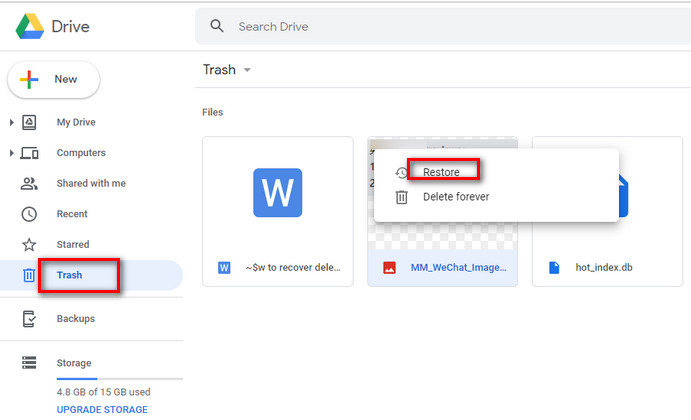Websites and their content are integral to the vast ecosystem of the internet. However, not all content is benign or appropriate. In instances where a website is found to be violating Google’s search policies, users have the ability to report it. This article explores the reasoning, process, and implications of reporting a website to Google.

Introduction
The internet is an unparalleled resource for information, services, and connections. However, with this great power comes the potential for misuse. Search engines like Google strive to provide users with quality content while safeguarding them from harmful materials. When a website is suspected of engaging in unethical practices—such as hosting malicious software, promoting hate speech, conducting scams, or any of GOOGLE DELETE PHISING’s other disallowed practices—reporting it can help maintain the integrity of online spaces.
Understanding the Necessity of Reporting
- Protecting Users: Violent, misleading, pirated, or otherwise objectionable content can pose risks to users. Reporting such sites helps protect individuals from harm and misinformation.
Maintaining Quality Standards: Google aims to ensure that the information presented to users is of high quality. Reporting websites that fail to adhere to these standards assists in maintaining the quality of search results.
Legal Compliance:
Websites sometimes host content that infringes on copyright, trademarks, or violate other legal frameworks. Reporting is a way to combat such practices and promote respect for the law.
Community Responsibility: Communities are increasingly recognizing the role they play in keeping the digital space clean. Reporting websites contributes to communal efforts to uphold ethical standards on the internet.
Steps to Report a Website to Google
The process of reporting a website to Google is relatively straightforward. Below is a comprehensive outline:
- Identifying the Issue:
- Before making a report, users should assess the content or behavior of the website. It is crucial to pinpoint whether the site is engaging in phishing, malware distribution, hosting inappropriate content, or other violations of Google’s policies.
- Gathering Evidence:
- Document specific examples of the problematic content. Screenshots, URLs, and any relevant correspondence can be valuable when filing a report.
- Accessing the Reporting Tool:
- Google provides various reporting tools based on the nature of the complaint. Users can visit the Google Search Help Center or directly access reporting options for specific issues like malware, phishing, or copyright infringement.
- Filling Out the Report Form:
- Reports generally require users to complete a form where they specify the nature of the issue, provide evidence, and supply contact information. It is crucial to be as detailed as possible to facilitate Google's review.
- Submitting the Report:
- Once the form is filled, users can submit it for review. After submission, Google may take some time to assess the report.
- Follow Up:
- Google may provide a confirmation of receipt, and users can check the status by logging into their Google account if applicable. However, due to privacy reasons, Google does not disclose the actions taken about the report.
Types of Violations that Can Be Reported
Google categorizes violations into several key categories that can be reported:
- Malware and Phishing: Websites that are found to distribute malware or attempt to deceive users into providing sensitive information.
Spammy or Deceptive Content: Content that misleads users or manipulates search engines, including keyword stuffing, cloaking, or using irrelevant redirecting.
Inappropriate or Harmful Content: This includes content related to hate speech, violence, adult content, or misinformation that could lead to social harm.
Copyright Infringement: Websites that host or promote content without proper licensing and infringe upon intellectual property rights.
Fake Reviews or Deceptive Practices: Websites that manipulate reviews or provide false information to attract users or customers.
Implications of Reporting
- Website Review Process: After reporting, Google undertakes its review process to ascertain the validity of the complaint. Users may not be informed of the outcome due to privacy policies surrounding website ownership.
Potential Site Removal: When a website is found to violate Google’s policies, it may be penalized through reduced search rankings or complete removal from search results. This underscores the importance of maintaining ethical practices online.
Encouraging Accountability: Reporting systems promote accountability among website owners. Knowing that users can report unethical content discourages harmful practices.
Possible Legal Actions: In certain circumstances, especially concerning copyright violations, reporting can lead to legal actions against the website owner.
Conclusion
Reporting websites to Google serves not only as a protective measure for users but also as a foundational aspect of maintaining the integrity of online content. The process is designed to be user-friendly, ensuring that anyone can contribute to a safer internet. When engaging in such actions, users must remain informed about the nature of the violations and the implications of their reports. Ultimately, fostering a collective effort to report violations contributes to a more trustworthy web for all users.
Through active participation and vigilance, individuals can help uphold the standards set forth by search engines, thereby making a positive impact in the digital landscape. Educating oneself about the reporting process empowers users and helps in safeguarding the integrity of online spaces for current and future generations.




Reviews